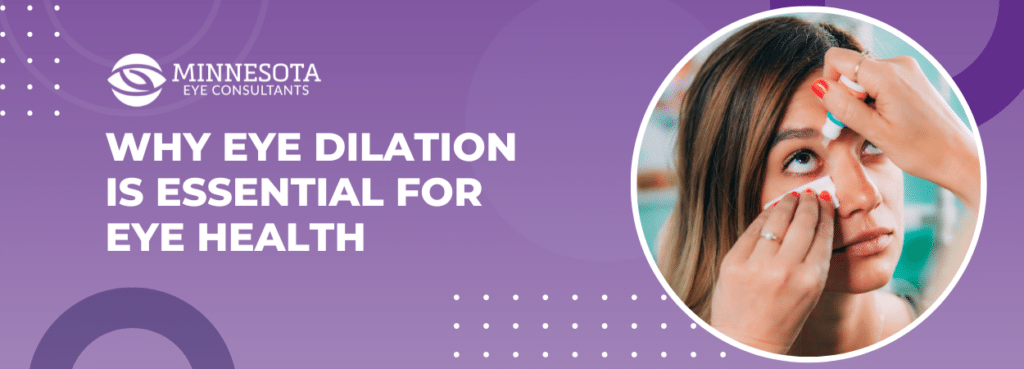
If you’ve ever had an eye exam, you may have experienced the temporary effects of pupil dilation. While it can be slightly inconvenient, this step plays a crucial role in protecting and maintaining your eye health. So, what exactly is dilation, and why is it so important? Let’s take a closer look.
What Happens During Dilation?
Dilation is a process where your eye doctor applies special drops that cause your pupils to widen. This allows more light to enter the eye, providing a better view of the internal structures, such as the retina, optic nerve, and blood vessels. Without dilation, these areas can be difficult to examine thoroughly.
Why Is Dilation Necessary?
- Detecting Eye Diseases Early
Many serious eye conditions, such as macular degeneration, diabetic retinopathy, and glaucoma, develop gradually and often show no symptoms in their early stages. By dilating your pupils, your eye doctor can detect these conditions early, which can lead to more effective treatment.
- Assessing Overall Health
Your eyes can reveal a lot about your general health. Conditions like high blood pressure, diabetes, and even certain neurological disorders can show signs in the eye’s blood vessels. A dilated eye exam allows your doctor to assess these changes and recommend further medical evaluation if necessary.
- Comprehensive Retinal Examination
The retina is responsible for processing light and sending visual signals to your brain. A dilated eye exam provides a detailed view of the retina, making it easier to identify concerns like retinal tears, detachment, or other abnormalities that might otherwise go unnoticed.
- Identifying Unusual Growths
In some cases, dilation can help detect tumors or unusual growths in the eye. Early detection of these conditions is essential for prompt treatment and better health outcomes.
What to Expect During Dilation
The process is simple and painless:
- Your doctor will apply dilation drops to your eyes.
- It takes about 15-30 minutes for your pupils to fully dilate.
- After the exam, your vision may be blurry, and you may be more sensitive to light for a few hours. Bringing sunglasses to your appointment and arranging for a ride home can be helpful.
Why Routine Dilation Exams Matter
Even if you have no noticeable vision issues, regular dilation exams are an important part of maintaining your eye health. Many conditions develop without symptoms, and early detection can make a significant difference in preserving your vision.
Prioritize Your Eye Health
At Minnesota Eye Consultants, we are committed to providing thorough and comprehensive eye exams to ensure the best possible care for your vision. Dilation is just one of the many tools we use to help detect potential eye conditions early and keep your eyes healthy.
Don’t wait until you notice vision problems—schedule your next eye exam today! Call us at (952) 888-5800 or click below to book your appointment.









